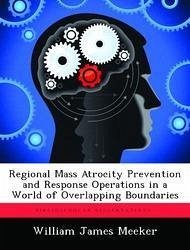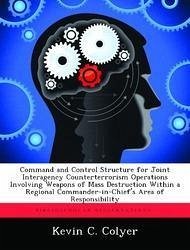
Regional Mass Atrocity Prevention and Response Operations in a World of Overlapping Boundaries
Versandkostenfrei!
Versandfertig in über 4 Wochen
53,99 €
inkl. MwSt.

PAYBACK Punkte
27 °P sammeln!
"Presidential Study Directive on Mass Atrocities/PSD-10" and the 2010 National Security Strategy elevated mass atrocities to a core national security interest. This study argues that PSD-10 will be implemented in a world where international borders are not as fixed as they once were. It explores the question of whether or not preparation for, and thinking related to, mass atrocity prevention and response operations (MAPRO) captures the regional nature of mass atrocities and requisite regional approaches to address the atrocities. This paper's thesis, that MAPRO does not sufficiently reflect re...
"Presidential Study Directive on Mass Atrocities/PSD-10" and the 2010 National Security Strategy elevated mass atrocities to a core national security interest. This study argues that PSD-10 will be implemented in a world where international borders are not as fixed as they once were. It explores the question of whether or not preparation for, and thinking related to, mass atrocity prevention and response operations (MAPRO) captures the regional nature of mass atrocities and requisite regional approaches to address the atrocities. This paper's thesis, that MAPRO does not sufficiently reflect regionalization, was found to be correct based on three arguments. First, MAPRO guiding documents identified regional dynamics pertinent to mass atrocities but did not address why regionalized mass atrocities may occur. Second, in weak state/weak regions, non-state actors or state actors may perceive different cognitive or physical boundaries. Civilians in these weak regions are particularly vulnerable to mass atrocities committed by state or non-state actors. Third, U.S. Government civilian missions overseas are not currently structured for regional operations, though this may change soon. Lastly, this paper uses two case studies to illustrate regionalization of conflicts and how U.S. civilian agencies have been forced to adopt regional approaches to addressing them that may be useful for future operations.












